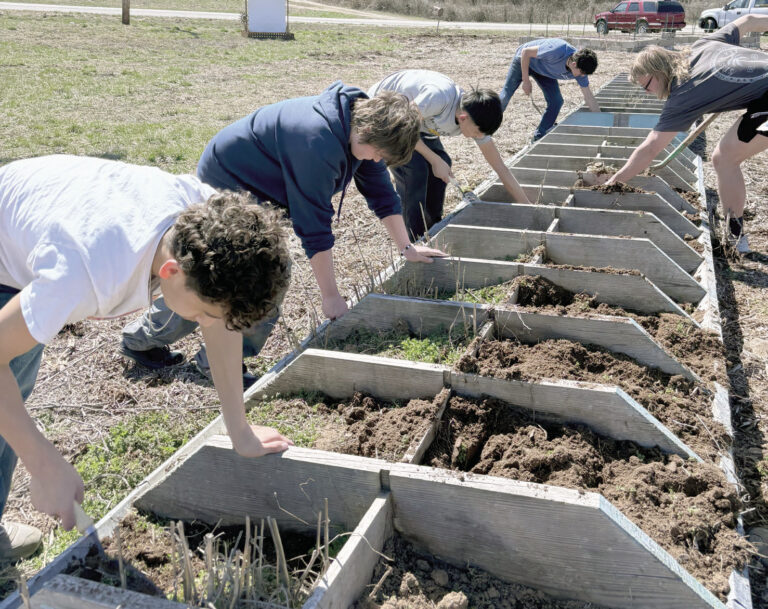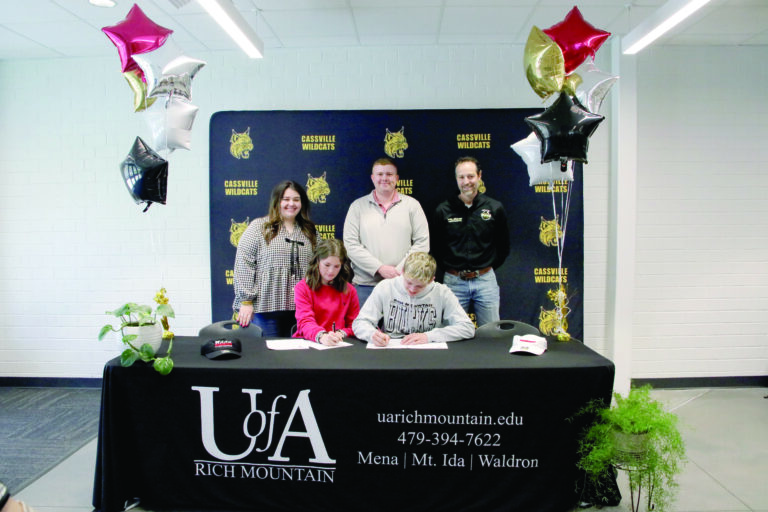BY SHEILA HARRIS sheilaharrisads@gmail.com
Proposed Missouri House Bills 1956 and 2134 were the subject of a nearly three-hour hearing before the House Conservation and Natural Resources Committee on Jan. 8.
If passed by the House, the bills can affect the way Denali Water Solutions and other businesses who store and land-apply industrial processing waste can conduct business in Missouri.
HB 1956, introduced by State Rep. Dirk Deaton, R-Noel, sought to “modify construction permit requirements under the Missouri Clean Water Act for projects involving sewage conveyance or discharge to Waters of The State.”
Permits were not required by the DNR prior to the construction of Denali’s two 15-million-gallon earthen storage basins in Newton and McDonald Counties, nor did the DNR assume oversight afterward, a fact which concerned many of the committee members present at the Jan. 8 hearing.
HB 2134, introduced by State Rep. Ed Lewis, R-Moberly, called for modifying “permit requirements and exemptions in relation to Missouri fertilizer and clean water laws.”
Prior to July 1, 2023, Denali and other companies operated free from DNR restrictions due to their possession of fertilizer permits from the MoFCB. According to Missouri law, the fertilizer permits exempted companies from oversight by the DNR, other than for violations of the Missouri Clean Water Law.
That status changed July 1, 2023, after the Missouri Fertilizer Board deemed fertilizer permits were no longer necessary for those companies because their process waste was not being sold to the owners of the land where those products were applied. As of July 1, the purview of the processing waste shifted to the DNR, although no permit and operating regulations have been established.
In spite of inclement weather, numerous witnesses were present in Jefferson City to speak either on behalf of the proposed legislation, or for informational purposes. Proponents included rep- resentatives for the Missouri Corn Growers Association, the Missouri Cattlemen’s Association, the Missouri Agri Business Association and the Missouri Fertilizer Control Board, among others.
James Harris, registered lobbyist for Denali Water Solutions, was the sole voice in opposition to the bills.
“I know there are no heavy metals in the waste Denali hauls,” Harris said, by way of addressing committee members’ concerns about the co-mingling of waste from a variety of industries in Denali’s storage lagoons in southwest Missouri.
Harris added that his certainty regarding the absence of heavy metals stemmed from the fact that Denali has been in operation in Missouri for over 20 years.
Denali and landowners Jerry Evans and Keith Gideon, however, have each filed objections in response to subpoenas requesting test samples from the basins. The subpoenas are part of an ongoing lawsuit filed against the DNR by the Newton/McDonald County citizens’ group, Stop Land Use Damaging our Ground and Environment, LLC (SLUDGE).
“If they have nothing to hide, why are they trying to hide it?” said Stephen Jeffery, SLUDGE’s attorney.
When asked by committee members, James Harris’ certainty about Denali’s operations did not extend to knowledge of how many out-of-state companies Denali contracted with: companies whose waste was hauled into, stored and land-applied in Missouri.
According to information found on the Missouri Fertilizer Control Board’s website on Feb. 1, 2023 — at that time — Denali held Missouri fertilizer permits in conjunction with 106 companies for which it hauled waste. Sixtythree of those industries were located outside of Missouri; of those, 43 were in Arkansas.
The total number of industries represented an increase of 26 from the year before. After the MoFCB’s decision to discontinue issuing fertilizer permits to Denali after June 30, 2023, the names of Denali, its contractors and other former permit- holders are no longer posted on the MoFCB’s website.
A combined version of HB 1956 and HB 2143 will be voted on during a House hearing on Jan. 23. The proposed changes would repeal four sections of 644 RSMo (the Clean Water Law) and replace them with language giving DNR the authority to establish storage and operating regulations for industrial process waste.
Vallerie Steele, one of the closest neighbors to Denali’s storage basin in Fairview and a plaintiff in SLUDGE’s case against the DNR, calls the proposed bill “extremely lax and watered down.”
Under the proposed legislation, the definition of an “agrichemical facility” would be changed to “any site, except a chemical production facility, where bulk pesticides or fertilizers, excluding anhydrous ammonia fertilizer, are stored in non-mobile containers or dedicated containers or are being mixed, applied, repackaged or transferred between containers for more than 30 consecutive days per year.”
A second proposed change calls for industrial wastewater and related process wastes (excluding manure) to be subject to “a nutrient management technical standard established by the [DNR,] which shall include application practices, setbacks, sampling requirements, frequency and a process for establishing land application rates.”
The standard shall be separate from those established for concentrated animal feed operations (CAFOs), the change specifies.
Steele believes this clause is not specific enough and gives the DNR carte blanche to make whatever rules they choose. To bolster her point, Steele points to wording in the proposed legislative change which states, “Such rules shall be designed to afford a prudent degree of environmental protection while accommodating modern agricultural practices.”
A key change in the wording of the proposed legislation, Deaton said, pertains to exemptions afforded previously by the possession of Missouri fertilizer permits.
“With this legislation, the only exemptions would be to entities producing products that are commercially sold to an end-user,” he said.
Other proposed legislative changes with HB 1956 and 2134 include a requirement for “a commingled offsite industrial wastewater or waste residuals storage basin or open storage vessel to meet current design requirements for wastewater treatment facilities and demonstrate the capacity to manage its design flow.”
Changes in the proposed legislation also call for the DNR to establish sampling requirements for basin contents and groundwater monitoring on a site-specific basis in “hydrologically sensitive areas.”
Basin setbacks from neighbors’ houses, too, are addressed in the proposed change, although Steele doesn’t believe they’re restrictive enough.
“The amount of setback will depend on the size of the basin,” Steele said.
Of equal concern, Steele said, is that if the DNR gives Denali a permit to operate before the proposed legislation takes effect, their basins would be grandfathered in.
“[Their basins] would need to pass an inspection from the DNR, but I’m sure that will happen,” Steele said.
Legislation similar to that of Representatives Deaton and Lewis has been introduced in the Missouri Senate by State Sen. Jill Carter, R-Granby.



